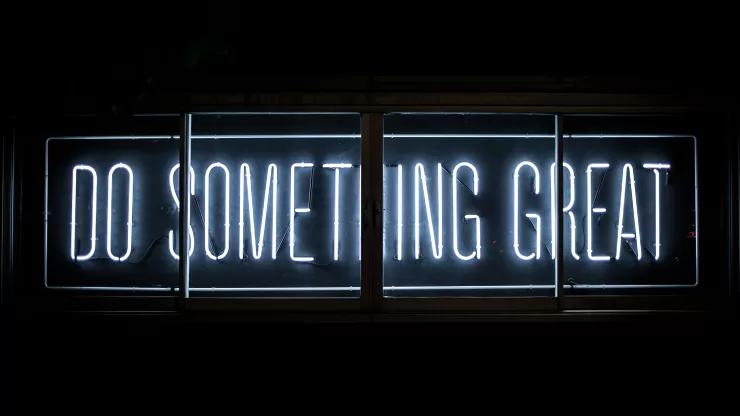Building a Personal Brand: A Secret Weapon for Career Success
In today’s competitive job market, it’s essential to stand out from the crowd. One way to do this is by building a personal brand.
Personal branding is the practice of marketing yourself and your career as a brand. It’s about showcasing your unique skills, strengths, values, and personality to differentiate yourself from others.
In this article, we’ll explore why personal branding is critical for career success, how to build a strong personal brand, and some success stories to inspire you.
Jump to Section
Why is Personal Branding Important for Career Success?
Personal branding is essential for career success for several reasons. Firstly, it helps you stand out from the crowd.
In a world where competition is fierce, having a personal brand can help you differentiate yourself from others and make a lasting impression on potential employers. Secondly, it can help you build credibility and trust.
When you have a strong personal brand, people are more likely to trust you and see you as an expert in your field. Thirdly, it can open up new opportunities.
A strong personal brand can attract new clients, job offers, and collaborations.
Building a Strong Personal Brand: Tips and Strategies
Building a personal brand takes time and effort, but it’s worth it. Here are some tips and strategies to help you build a strong personal brand:
-
Define your brand: Start by defining your brand identity, including your values, strengths, skills, and personality traits.
-
Create a personal website: A personal website is an excellent way to showcase your brand and your work.
-
Share your knowledge: Share your knowledge and expertise with others through blog posts, podcasts, or videos.
-
Network: Attend industry events and connect with other professionals in your field.
-
Be authentic: Be true to yourself and your brand. Don’t try to be someone you’re not.
Leveraging Social Media for Personal Branding
Social media is a powerful tool for personal branding. Here are some ways to leverage social media to build your personal brand:
-
Choose the right platforms: Choose the social media platforms that align with your brand and your goals.
-
Be consistent: Be consistent in your messaging, tone, and visual branding across all platforms.
-
Engage with your audience: Engage with your audience by responding to comments and messages.
-
Share valuable content: Share content that is relevant, informative, and valuable to your audience.
-
Use hashtags: Use hashtags to increase the visibility of your content and reach a wider audience.
Personal Branding Case Studies: Success Stories to Learn From
There are many success stories of individuals who have built strong personal brands. Here are three examples:
-
Gary Vaynerchuk: Gary Vaynerchuk is a serial entrepreneur, author, and internet personality. He built his personal brand through his online presence, including his blog, podcast, and social media accounts.
-
Marie Forleo: Marie Forleo is a life coach, author, and speaker. She built her personal brand through her online courses, YouTube channel, and social media presence.
-
Neil Patel: Neil Patel is a digital marketing expert and entrepreneur. He built his personal brand through his blog, podcast, and social media accounts.
Overcoming Common Personal Branding Challenges
Building a personal brand can be challenging, and there are some common obstacles that people face. Here are some tips to overcome these challenges:
-
Lack of time: Building a personal brand takes time, but it’s essential to make it a priority.
-
Fear of self-promotion: It can be uncomfortable to promote yourself, but remember that personal branding is about showcasing your unique skills and strengths.
-
Lack of clarity: If you’re not clear on your brand identity, it can be challenging to build a strong personal brand. Take the time to define your brand and your goals.
Maintaining and Evolving Your Personal Brand Over Time
Your personal brand is not static; it will evolve over time. It’s essential to maintain and evolve your personal brand to stay relevant and competitive.
Here are some tips:
-
Monitor your brand: Keep track of your online presence and reputation.
-
Stay up to date: Stay up to date with industry trends and changes.
-
Revisit your brand: Revisit your brand identity regularly and make adjustments as needed.
Conclusion: Your Personal Brand is Your Secret Weapon for Career Success
Building a personal brand is not easy, but it’s worth the effort. A strong personal brand can help you stand out from the crowd, build credibility, and open up new opportunities.
By following the tips and strategies outlined in this article and learning from success stories, you can build a powerful personal brand that will help you achieve your career goals.
Remember, your personal brand is not just about promoting yourself; it’s about showcasing your unique skills, strengths, values, and personality.
By being authentic and consistent in your messaging, you can build a personal brand that resonates with your audience and sets you apart from others.
So, start building your personal brand today and see how it can help you achieve career success.
FAQ
What is the difference between personal branding and self-promotion?
Personal branding is about showcasing your unique skills, strengths, values, and personality to differentiate yourself from others. It’s a strategic approach to marketing yourself and your career as a brand.
Self-promotion, on the other hand, is about promoting yourself and your achievements without a clear strategy or purpose.
How long does it take to build a personal brand?
Building a personal brand takes time and effort. It’s not something that can be done overnight.
It can take several months or even years to build a strong personal brand.
Can personal branding help me change careers?
Yes, personal branding can help you change careers. By showcasing your transferable skills and strengths, you can position yourself as a viable candidate for a new career.

With a deep passion for personal development, Ben has dedicated his career to inspiring and guiding others on their journey towards self-improvement.
His love for learning and sharing knowledge about personal growth strategies, mindfulness, and goal-setting principles has led him to create My Virtual Life Coach.
Contact Ben at [email protected] for assistance.




